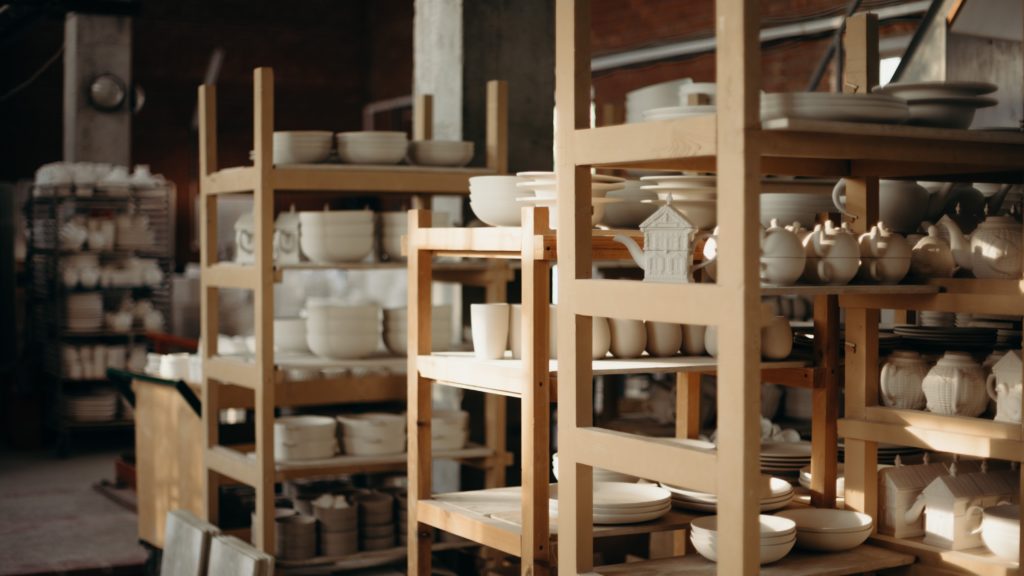Does Hard Anodized Cookware Belong in your Kitchen?
Are you looking at hard anodized cookware for your next set? What are the pros and cons of hard anodized cookware? Is it safe for cooking?
Our hard anodized cookware reviews unpack everything you need to know about using this kitchenware at home.
What is Hard Anodized Cookware?
Hard anodized cookware features an aluminum design for superior heat conductivity and dispersion across the cooking surface. Hard anodized aluminum is aluminum that undergoes an electrochemical process, producing a hardening effect on the material.
Typically, aluminum is soft, and it’s easy to scratch and dent. The anodizing process hardens the material making it suitable for use in cookware.
The electrochemical process for hardening aluminum involves dipping the material in acid and sending an electrical charge through the metal to oxidize the cookware surface.
This process also helps prevent the cooking surface from interacting with acid foods, preventing a chemical reaction.
Compared to other durable materials like stainless steel, hard-anodized aluminum is almost twice as durable and hard.

How Do I Choose the Best Hard-Anodized Cookware?
Follow these guidelines when choosing your hard anodized cookware set.
Construction and Material – There are sets featuring pure aluminum construction and others that rely on a stainless steel or copper core.
You can choose from single aluminum cookware with anodization or a combination of copper and stainless steel core. You get a super-conductive base that spreads the heat evenly across the cooking surface.
Some hard anodized cookware offers you a non-stick surface. Since there’s no PTFE or Teflon involved in the manufacturing process, there’s no chance of the cookware leeching harmful PFOAs and heavy metals into your food. Therefore, it is suitable for daily use in the kitchen.
Price
If you’re purchasing a hard anodized cookware set, we recommend going with a leading brand you can trust. Some low-quality manufacturers skip out on steps in the manufacturing process, producing inferior-quality cookware.
As a result, the coating could lift or slowly erode over time, sending those metals into your food. A premium brand ensures you get the best quality cookware that lasts a lifetime. The price difference between cheaper brands and premium sets is wide, and you get what you pay for with your cookware.
What are the Pros and Cons of Hard Anodized Cookware?
Pros
A non-stick cooking surface – After the anodizing process, the cookware receives a non-stick coating. However, we recommend avoiding any cookware coatings containing PTFE or PFOAs. These chemicals can leech into your food, especially if you’re cooking at high temperatures.
Long service life and durability – As mentioned, hard-anodized aluminum cookware is also twice as strong as stainless steel. You get resistance against scratches and dings and long service life in the kitchen.
Non-reactive coating to acidic foods – Most metallic cookware reacts with acidic foods, causing the coating on the metal to breakdown, leeching the harmful toxins into your food. With a high-quality hard anodized cookware set, you get no reaction when cooking with acidic foods like tomatoes and lemons.
Non-toxic coating – Unlike other non-stick cookware models, hard-anodized aluminum doesn’t come with any PTFE coating containing PFOAs. The electrochemical process creates a strong bond to the metal, ensuring you get a non-stick surface.
Lightweight and easy to handle – Aluminum is one of the lightest metals available. Therefore, it’s easier to control and handle in the kitchen, even when using the largest pans or stockpots.
Cons
Price – Top-quality hard anodized cookware is expensive. Compared to other non-stick models, hard-anodized can cost you up to 40% more over stainless steel and ceramic pans.
Not suitable for use in induction stoves – Unfortunately, most hard-anodized aluminum cookware is not compatible with induction stovetops.
Not dishwasher safe – Hard anodized cookware is not dishwasher safe. The high washing temperatures and aggressive chemicals used in dishwashers strips away the non-stick coating. Therefore, you’ll have to wash the pan by hand.
Not suitable for high Heat temperature cooking – Hard anodized cookware absorbs heat efficiently and quickly. Therefore, it’s better to cook on a lower heat than with other materials like stainless and carbon steel.
Is It Safe to Use Hard Anodized Cookware?
Yes, hard anodized cookware is entirely safe to use in the kitchen. However, you’ll need to ensure you purchase a pan or set from a reputable manufacturer.
Some people are scared that the anodizing process might end up leeching toxins into their food. However, leading manufacturers seal the aluminum, ensuring it can’t enter your food.
What is Better Stainless Steel or Hard Anodized?
Stainless steel offers a great option for versatile cooking. You get a fast heating time, with excellent heat dispersion.
Hard anodized cookware provides the same level of performance at a lower price point.
The major difference between stainless and hard anodized is that stainless works on induction stovetops and anodized doesn’t.
Which is Better Hard Anodized or Nonstick?
Hard-anodized aluminum cookware is non-porous and non-toxic. It also requires less oil for cooking, helping you prepare healthy meals.
The hard anodized layer on the cookware lasts up to three times longer than a conventional non-stick pan. However, stainless steel can withstand higher temperatures, and it’s the better choice for use in the oven or broiler.
Both stainless steel and hard anodized aluminum offer optimal performance at lower cooking temperatures on the stove.

Hard Anodized Vs Ceramic Cookware
The hard anodizing process involves the use of acid and electro-plating chemicals to produce a non-stick surface.
With ceramic cookware, the manufacturer adheres a porcelain-like material to the cooking surface of the pan. Typically, ceramic coatings for leading manufacturers offer you the longest service life and resistance against scratching.
Ceramic is easy to clean, and most sets are dishwasher compatible. Ceramic is also free of heavy metals and toxins that might cause harmful effects to your health.
However, Ceramic is far more expensive than hard anodized, and you’ll need a decent budget to avoid a good set from a leading brand.
Wrapping Up – Hard Anodized Cookware Suits Your Daily Lifestyle
Hard anodized cookware is a great choice for your daily-driver around the kitchen. Whether you’re purchasing a pan or a complete cookware set, make sure you follow the guidelines in this review to get the most out of your cookware.
